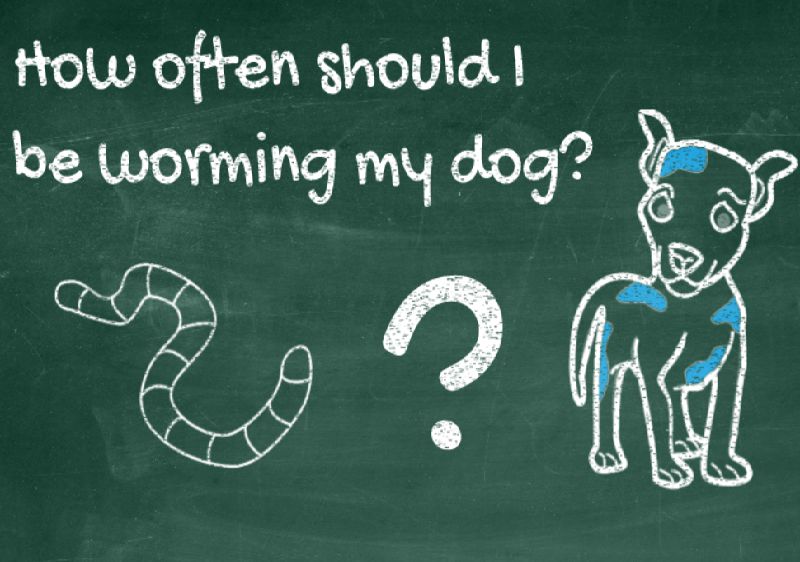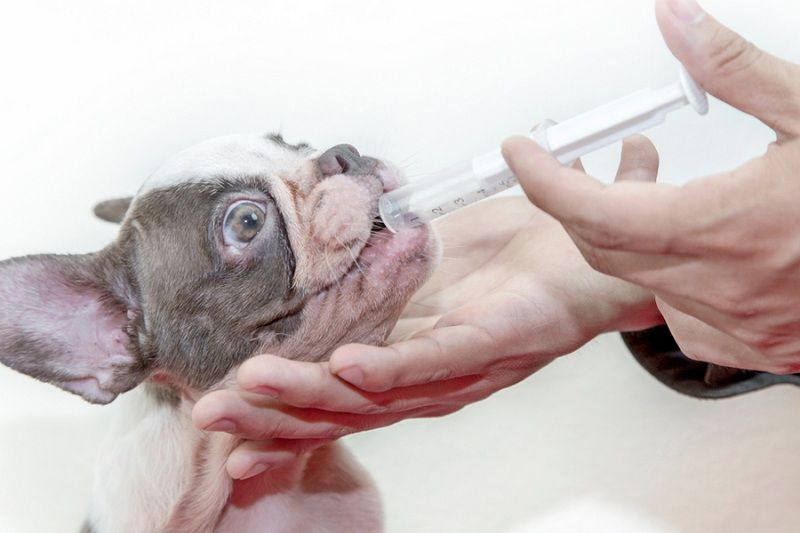Every dog owner knows how important it is to keep dogs and other pets parasite-free. But very few people do internal deworming the way it’s supposed to be done. The subject of deworming dogs has been hotly debated with countless opinions, conflicts of interests and opposing views which makes the whole process very confusing. Before I head to answer some of the most common questions I get asked about deworming dogs, I should emphasis it’s very important to ask a vet any question you have about the same.

I. Is deworming necessary for dogs?
Dogs both young and old are susceptible to intestinal parasites that can cause a number of complications. Some of these internal parasites are hookworms, whipworms, tapeworms and roundworms. These worms also cause diseases which is the reason why you should deworm your dog frequently.
The fact is common worms in puppies can be deadly if left untreated. The worms can actually damage your dog’s internal organs. This leads to loss of consciousness and most unfortunately death. Dogs that are infected with Echinococcus granulosus dog tapeworm can develop a rare but deadly disease known as hydatid. This causes cysts to form in vital organs which eventually damages them.
Additionally, if roundworms are left untreated, they may cause serious lung damage, liver problems and brain failure which can cause serious and permanent health consequences.
II. How often should you deworm your dogs?
I will assume you know that common worms can be easily controlled through routine deworming. For that reason, there’s need to deworm your dogs and puppies more often. If you’re wondering how often you should worm your dogs, first of all determine the age and the condition at hand. The fact is dogs vary in their worming needs. Here is how often you should deworm your dogs.
1. Puppies
Puppies are very susceptible to worms and for that reason, they should be dewormed more often. I always advise deworming puppies every 2 weeks until they are 3 months old. After this, you can start to treat them once every month until they are half a year old. After this, treat them once in every three months for life.
2. Adult dogs
Adult dogs are not at a comparatively higher risk of getting worms as their younger counterparts. What this shows is that they can be dewormed less frequently. As a rule of thumb, deworm them at least once in every three months. One common mistake that people make is to use ‘dewormers’ that don’t cover tapeworms. For dog owners that choose deworming treatment that don’t cover tapeworms, it’s a wise thing to give the dog a worming tablet or chew that has Cazitel or Drontal. Some vets would also give you tapeworm worming tablets containing Praziquantel.
3. Dogs in the rural areas
The frequency of deworming your dogs may change if they are living in the rural areas. This is specifically because dogs in these areas are more exposed to hydadit tapeworms that is found in animal carcasses. Consequently, adult dogs in the rural areas should be dewormed once every six weeks. Puppies should also be dewormed more frequently.
With that in mind, it’s also important to take some clear precautions to reduce the exposure. Here are some of the things you should do.
- Limit dog’s access to animal carcasses
- Even after touching your dogs, wash your hands with water and soap.
- Don’t feed your dog raw meat.

III. How do you deworm a dog?
Although there are some major drugs you can use to deworm your dogs, I believe there’s need to prevent. This means that there’s need to control some animals and insects that carry such parasites. Control flea and mosquitos. Try your best to limit the dog’s access to carcasses and the garbage bins. The home should also be clean and neat. This is a favor not only to the dog but to humans too. Some types of dog worms can infect humans.
1. Here are some steps to ward off worms
Take the dog to the vet at least once a year-Its important to make sure your vet checks for all the signs and symptoms of all types of worms on Dog vomit and diarrhea and through lab tests once every year. For puppies, the vet should check more often.
2. Get a Prescription from your vet
The vet should be in a capacity to prescribe drugs that will prevent heartworms. Take these drugs and give to your dog at least once every month. Note that skipped doses can reduce the drug’s efficiency. If you are not sure whether you will remember every time, ask your vet about a deworming injection that can be given once after a predetermined period of time.
V. How do I know if my dog has worms?
To know whether your dog has worms, check for visible worms or eggs on the dog’s poop, check the fur for visible worms especially around the dog’s rear. You may also notice some visible worms in the vomit and bloated belly or stomach.

VI. Deworming dogs most common mistakes
Besides the fact that people have full information about dog worms, internal deworming is not always done correctly. Here are some mistakes people make.
- Ignoring the dog’s weight when administering anti-parasites
- Trusting that all anti-parasites eliminates all types of worms
- Deworming only one dog while you have more than one pets
- Believing that all pet should be dewormed at least once a year or once in every three months
Medicating your pet on your own is another common mistake. Most people fail to involve a vet when treating worms in dogs which is a major mistake. The vet should be in a position to determine different types of worms and instructing an appropriate treatment.
Lastly, dog owners also forget to re-administer the drugs as instructed by the vet. If this is not done correctly, there are chances that the root problem will not be eliminated completely. This is an indication that the vet should regularly diagnose the dog and recommend dependable treatment.
